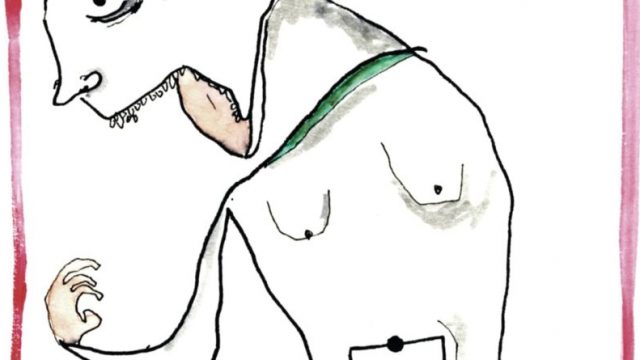Stories of the bands behind the songwriters behind the songs behind the movies behind the filmmakers.
Thanks to Miller, Conor Malcolm Crockford and Casper for contributing this week, the Solutors behind the articles behind the FAR. Send articles throughout the next week to ploughmanplods [at] gmail, post articles from the past week below for discussion, and Have a Happy Friday!
For Decider, Judas and the Black Messiah director Shaka King talks with Jordan Hoffman about the movie’s soundtrack (complete with plenty of song clips) and why he wanted to dig deeper than standard 60s soul signifiers:
We did our pitch meetings with [Rahsaan Roland Kirk’s] “The Inflated Tear.” I played it to set the tone. In the film it starts with Rahsaan’s horns, but the song itself begins with these ambient bells, and we’d play that to get people in the zone. It was crazy that it ended up in the actual movie. I can’t say I always knew it would be in there — I knew that it had to feel like this. But when you see [LaKeith Stanfield] walking in that coat, and it’s flapping behind him? Those horns sound like we’re starting a noir film. Then later on, when the badge comes back, I knew it could be a cool callback. This is what I love about filmmaking: to take music and marry it with imagery. It elevates it, or offers contrast. It’s a great element to play with.
At The AV Club, Cameron Scheetz talks to songwriter Barry Mann about working on Muppet Treasure Island, digging up a buried quarantine anthem in “Cabin Fever”:
“This is a song that called for insanity,” says Barry Mann, who, along with wife Cynthia Weil, penned the tunes for Muppet Treasure Island, The Jim Henson Company’s typically whimsical take on Robert Louis Stevenson’s classic tale. “That was probably the most fun I ever had writing a song.” The composing duo rose to the occasion, meeting the spectacle and sheer lunacy of the film’s central number, which required 25 additional puppeteers on set to pull it off. Sung by an ensemble of some of the most uniquely strange Muppets ever created, “Cabin Fever” captures what is (these days) an all-too-familiar kind of madness: one resulting from too much time spent in one place. Even with decades of memorable musical moments under their felts, “Cabin Fever” stands out as one of the catchiest—and most pertinent—numbers in the Muppet repertoire.
Cinematographer and director Jenni Morello talks about the trauma of working on documentaries about traumatic subjects, and how filmmakers need to address its effect on those making the movie:
So what is realistic in our line of work? Not therapy and discussion at the end of every shoot day; we’re all too exhausted and hungry and we just want to get as much sleep as possible. But I do think there could be something incredibly beneficial to checking in on each other after a film is wrapped. A group therapy session of sorts. Especially for those of us that work behind the camera or don’t have the agency to stick up for ourselves. We all go into this work with a certain purpose or intention, but we don’t always extend that to our crew members.
For Filmmaker magazine, Boston-based Jake Mulligan looks at how Frederick Wiseman’s City Hall presents a case for soon-to-be Secretary of Labor Marty Walsh:
It should go without saying that what you’re seeing of Marty Walsh in City Hall is a performance, but it’s not for Wiseman; it’s the same one he puts on month to month and year to year as an elected official. When he’s seen in the movie, he’s always speaking to a public gathering or a large private group and delivering remarks that—even at their most personal, even at their most vulnerable and even at their most sincere—are either reflective of his position as the city’s mayor or reflective of his position as a politician who might someday want to hold an even higher office.
And finally, at Mercury an astute writer by the name of C. M. Crockford, maybe you’ve heard of him, writes about alt-rock’s Yuck and their debut album on the 10th anniversary of its release (and, as it turns out, the day the band announced its breakup):
I was absolutely one of those kids of course, and the likes of ‘Suicide Policeman’ sounded beautiful on my headphones while I moped around San Francisco, vaguely heartbroken with no real reason to be yet. A decade later, ‘Get Away’ and ‘The Wall’ are still great one-two punch openers, Max Bloom’s rollicking guitar sound combining melody with giddy enthusiasm. The first single ‘Holing Out’ is the purest pop song of the bunch with sticky-sweet harmonies on the chorus: “If my skull is empty/I’m holing out for you.” Meanwhile, ‘Operation’ uses a menacing riff and dual guitars to maximum benefit, singer Daniel Blumberg’s snotty, delayed vocals never used more effectively.

